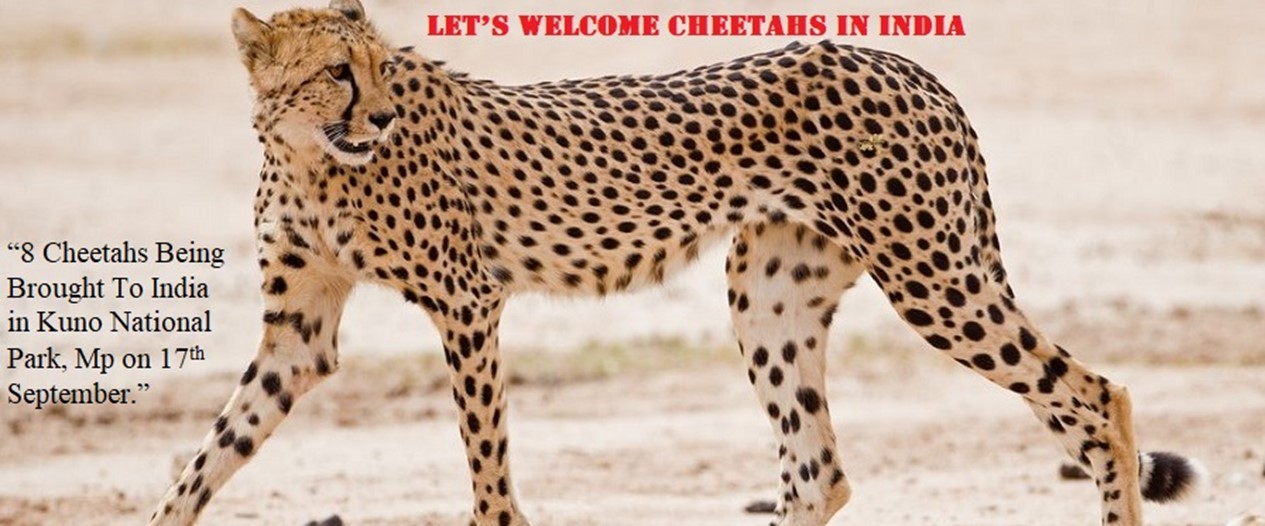PREVIOUS
Cheetahs on India
September 19 , 2022
1186 days
1466
0
- 70 years after its extinction from India, the cheetahs are back on Indian soil.
- Eight big cats were released into the Indian wildlife in Madhya Pradesh's Kuno-Palpur National Park (KPNP) on 17th September by Prime Minister Modi on his 72nd birthday.
- India was home to Asiatic cheetahs in the past, but the species was declared extinct domestically by 1952.
- The last cheetah was killed in Koriya district of Chhattisgarh in 1947.
- The arrival of eight big cats from Namibia is the biggest wildlife translocation project in history.
- The Kuno National Park was chosen as the optimum location to introduce the extinct animal for its good prey base for cheetahs.
- The park has a good population of chinkara, spotted deer, and blackbuck, on which the cheetahs can prey and grow in the wild.
- These are Considered vulnerable under the International Union for Conservation of Nature (IUCN) Red List of threatened species.
- There are fewer than 7,000 cheetahs left around the world, primarily in the African savannas.
- Its range includes the eight countries of Namibia, Botswana, South Africa, Zimbabwe, Angola, Zambia, Tanzania, and Kenya.
- The 'African Cheetah Introduction Project in India' was first conceived in 2009.
- In July 2020, India and the Republic of Namibia had signed a Memorandum of Understanding (MoU) around the conservation of cheetahs.

Leave a Reply
Your Comment is awaiting moderation.


